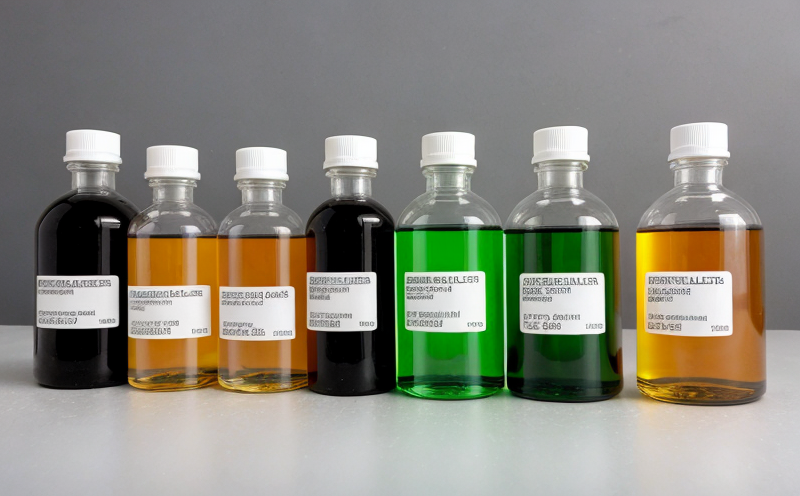Exhaustive Extraction Study of Device Materials
The Exhaustive Extraction (EE) study is a critical quality assurance (QA) and regulatory compliance procedure used to identify, quantify, and qualify all extractable substances from the materials in medical devices. This process aims to ensure that any leachable or extractable compounds do not pose a risk to patient health.
The EE study involves subjecting the device materials to various solvents under conditions designed to simulate real-world exposure scenarios. The extracted substances are then analyzed using advanced analytical techniques such as High-Performance Liquid Chromatography (HPLC), Gas Chromatography-Mass Spectrometry (GC-MS), and Fourier Transform Infrared Spectroscopy (FTIR).
The primary goal of the EE study is to ensure that the materials used in medical devices are safe for patient use. Regulatory bodies like the US Food and Drug Administration (FDA) and the European Medicines Agency (EMA) require such studies as part of their regulatory processes.
During an EE study, it's essential to consider various factors including the type of device material, the intended use of the device, and the end-user population. For instance, materials in direct contact with blood or other bodily fluids may require more stringent extraction conditions compared to those in less critical areas.
The results of an EE study provide crucial information for risk assessment and mitigation strategies. These studies help manufacturers identify potential risks early on, allowing them to take corrective actions before product release. Additionally, the data generated from these studies can be used during device development phases to make informed decisions about material selection and processing.
Understanding how different extraction solvents interact with various materials is key to conducting a thorough EE study. Common solvents include water, methanol, acetone, ethanol, and phosphate-buffered saline (PBS). The choice of solvent depends on the specific requirements of the device being tested as well as industry standards.
Real-World Usage Notes
In practice, EE studies are conducted at different stages of product development. Early-stage studies help identify potential issues early in the design process while later-stage studies ensure that all risks have been adequately addressed before final approval.
It's important to note that not all materials will leach or extract under standard conditions; some materials may only release substances when exposed to certain conditions like high temperature or prolonged contact. Therefore, it’s crucial to design the EE study carefully based on the expected usage of the device.
Why It Matters
The importance of exhaustive extraction studies cannot be overstated. Regulatory requirements and patient safety are paramount considerations in medical device manufacturing. By identifying potential risks early, manufacturers can implement necessary safeguards to protect public health.
- Patient Safety: Ensuring that no harmful substances are released from the materials used in medical devices is critical for protecting patients' health and well-being.
- Regulatory Compliance: Adhering to strict regulatory guidelines helps avoid costly delays and penalties during product development and commercialization.
- Risk Mitigation: Early identification of potential risks allows manufacturers to address issues before they become significant problems, reducing the likelihood of recalls or product failures.
Eurolab Advantages
Eurolab has extensive experience in conducting comprehensive EE studies across various medical device sectors. Our team consists of highly trained and certified professionals who stay updated with the latest regulatory requirements and industry best practices.
- Comprehensive Expertise: Eurolab offers a wide range of expertise, including chemistry, biology, engineering, and quality assurance. This multidisciplinary approach ensures that all aspects of an EE study are thoroughly addressed.
- State-of-the-Art Facilities: Equipped with cutting-edge analytical instruments such as HPLC, GC-MS, FTIR, and others, Eurolab provides accurate and reliable results. Our facilities meet or exceed international standards ensuring consistent quality across all projects.
- Regulatory Knowledge: Our consultants are well-versed in regulatory requirements set forth by the FDA, EMA, and other relevant bodies worldwide. They ensure that every EE study conducted aligns with these stringent guidelines.





